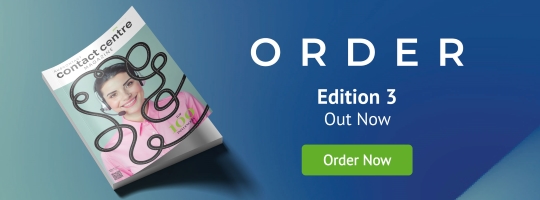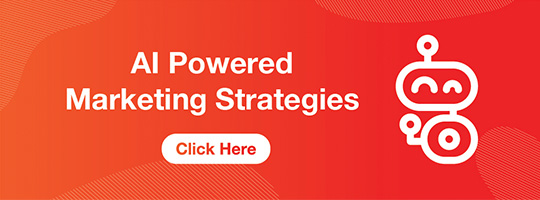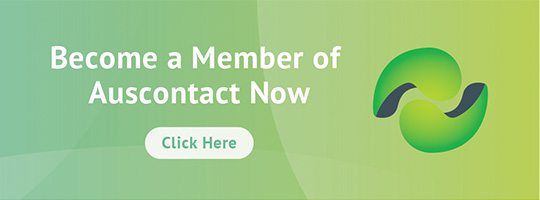Mental health is a growing concern in the modern workforce, and the contact centre environment is no exception. With the increasing demands of a 24/7 economy, pressure to maintain high levels of performance and customer satisfaction, and a competitive labour market, contact centre employees are facing challenges that can have a significant impact on their mental well-being.
By Linda Boyd, CEO and Founder KLEU Australia
In recent years, there has been a surge in the number of reported cases of mental health issues across Australia, including stress, anxiety, and burnout. COVID lockdowns added additional pressure, with widespread disruption to daily lives, the fear of uncertainty, and physical distancing measures that resulted in social isolation and loneliness for many.
From a contact centre perspective, supporting increasingly distressed customers has taken a toll with organisations reporting increased levels of personal leave, increased turnover rates and a fragility in the workplace that hasn’t been seen before.
So, what can be done to address this growing problem? How do organisations move away from treating the problem of mental health, and shift to a preventative approach focused on building the mental fitness employees need to be capable of coping with the pressures of our environment?
Over the past 10 years, organisations have heightened their focus on creating supportive workplace cultures, providing resources and support for employees with mental health issues, and dutifully encouraging employees to prioritise their mental and emotional health. These measures have contributed to improved work environments and ensured the availability of some necessary support systems once mental health services are needed; however, they have done nothing to build employee resilience or to increase the overall mental fitness of employees.
Seeing this issue and with a background in psychology, Linda Boyd set out to pioneer a whole new approach to equipping employees with the emotional fitness to handle the demands of contact centre roles. Dealing with clients who can be distressed, vulnerable, aggressive, and frustrated on a daily basis can take its toll, and this was when KLEU was born.
“Only 20% of employees had the capability needed to do their roles well and flourish in the workplace.”
What is KLEU and what problem does it solve?
KLEU solves the problem of people being emotionally ill-equipped for the emotional labour aspect of a role in a contact centre. It equips them with the emotional capability to manage stress and improve the interactions they have with themselves, their team, and customers. It’s a fully immersive digital experience incorporating simulations, coaching videos, and gamification, which builds a set of behavioural habits we refer to as ‘emotional fitness’.
What is the AI component of KLEU?
KLEU uses AI to drive a fully automated and personalised journey for each learner. This is what has enabled us to replicate a real-life EI coach, digitally and provide the scalable solution this industry needs. But the significant technological innovation which underpins KLEU is experiential learning-based simulations. Experiential learning refers to ‘learn by doing’ and is the most effective way for most people to learn new skills.
What science underpins KLEU?
My background in Psychology embedded a firm respect for quantitative analysis and I knew that to pioneer a whole new approach to equipping employees in large enterprise and government environments would require robust science and a strong ROI. So, first we measured the EI of over 1000 employees in contact centres and over a 12-month period gathered data on the performance of these employees in 5 key areas: customer satisfaction, sales conversions, sick leave, employee engagement and emotional wellbeing. This enabled us to identify two key things.
One, that only 20% of employees had the capability needed to do their roles well and flourish in the workplace. This explained the systemic challenges with attrition, sick leave, and burnout the industry had faced. It also explained why only 20% of employees (at best) sit in the highly engaged high-performer range. Secondly, it revealed the psychological profile and competencies which the top performers possessed.
We then engaged with academia to evaluate all the existing models within behavioural science, experiential learning, and neuroscience to determine the most effective techniques to build the capability.
How do the simulations work?
Through industry research, we have identified the common scenarios in contact centres that employees and their leaders feel ill-equipped to handle. We’ve then replicated these as interactive simulations, where learners interact with digital characters, including customers, colleagues, and management, across multiple channels; voice, digital and face- 2-face.
By creating a safe virtual world for people to practice applying different techniques and observing how the other person responds, employees can experiment and receive feedback from the digital coach on the choices they’ve made. We’ve gamified the whole experience, so their emotional fitness ‘odometer’ increases when they score points for applying the most effective technique for managing an interaction.
Without there being any real-world consequences, people feel safe trying different ways to manage a situation and observing the different outcomes and score.
How does KLEU change habits?
KLEU leverages the brain’s neuroplasticity, meaning the brain re-organises itself based on the experiences it has. In simple terms, this basically means that what we practice becomes habit.
It takes 12 weeks to re-train the brain in emotional fitness techniques. It requires 15 minutes of KLEU, three times per week to create the new neural pathways associated with emotional regulation and management, which show up as greater resilience, empathy, and collaboration skills in the workplace.
What impact does KLEU have on metrics?
I set out to demonstrate that if we equip people with the fundamental human skills that really matter; the ability to understand and regulate their own emotions, manage stressors and build more effective relationships, the business metrics would follow.
Over the past 3 years we’ve measured the impact of KLEU in various contact centre environments, including challenging environments like the federal government, banking and insurance claims and consistent demonstrated results like a 54% reduction in sick leave, a 3.5 pt increase in customer NPS and 35% decline in staff turnover.
This led to KLEU being recognised in the NSW Government’s 2021 R&D Innovation Challenge for ‘Economic Resilience and Recovery from Covid-19’ and being awarded the Gold Medal in the Contact Center World awards for ‘Best New Technology Innovation – Live Agent Support in APAC and the silver medal globally’.
Employers have a legal and ethical responsibility to manage psychosocial hazards in the workplace, and a duty of care to provide a safe and healthy work environment for employees. With increased regulation and obligations in relation to mental well-being, organisations need to think differently about their approach.
KLEU is helping organisations rethink how they build the necessary mental fitness, their employees need to be successful. The ability to build these habits provides extensive savings and benefits to organisations, including changing attendance impacts, reducing insurance premiums, improved performance outcomes, not to mention improved mental fitness of the workforce. Organisations have a clear responsibility to focus on the mental fitness of employees, KLEU enables this and is a game changer that organisations cannot afford to ignore.











Comments are closed.